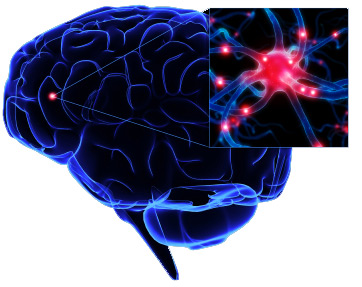Stimulants
The term stimulants (or psychostimulants) refers to psychoactive compounds which temporarily activate neurological activity, increase mental alertness, awareness, wakefulness, locomotion and etc. In other words psychostimulants are drugs with energizing or/and mood-elevating effects.
Due to these “up” effects, stimulants are also referred to as "uppers", in contrast to depressants, which have the opposite effects, which decrease mental and physical function and referred to as “downers”.
Stimulants are widely used throughout the world as prescription medicines that in moderate or low doses increase mental and behavioral activity and as illicit substances of recreational use or abuse.
STIMULANTS Effects
All psychostimulants produce common stimulants effects that can be explained by enhancing the activity of the central and peripheral nervous systems. There is a number of stimulants effects and characteristic symptoms, which may vary depending on the substance:
-
- CNS (central nervous system) effects: awareness, wakefulness, endurance, productivity, enhanced motivation, increased arousal, locomotion, enhanced alertness with increased vigilance and a sense of well-being and euphoria, perception of a diminished requirement for food and sleep.
-
- PNS (peripheral nervous system) effects: increased heart rate, blood pressure, breathing, irregular heart beating, increased blood glucose, dilated pupils of the eyes.
Psychostimulants present a broad category of substances, including those:
– prescribed for medical conditions;
– manufactured for illicit substance abuse;
– found in over-the-counter (OTC) decongestants, herbal extracts, caffeinated beverages, and cigarettes.
Stimulants exert their effects through a number of different pharmacological mechanisms, mostly through the increase of the amount of norepinephrine (noradrenaline) and dopamine in the brain via reuptake inhibition and through the direct release of these catecholamines from storage vesicles in brain cells.
DANGER OF STIMULANT ABUSE
Stimulants increase dopamine within the brain and give an euphoric feeling. Elevated mood, increased alertness, increased energy, insomnia, and anorexia are all common symptoms associated with stimulant use. It explains why some people are chosen stimulant abuse. However, there are also a number of dangerous symptoms that can occur when stimulant medication is abused:
-increased blood pressure;
-increased heart rate;
-irregular heartbeat;
-constricted blood vessels;
-chest pain;
-abdominal pain and nausea;
-headache;
-high body temperature;
-slow or fast respiration rates;
-adverse psychiatric symptoms: irritability, aggression, paranoia, hallucinations, delusions.
These symptoms may result in much more serious medical conditions such as: cardiovascular failure, myocardial infarction, central vessels thrombosis, brain hemorrhage or ischemic stroke, seizures, cephaledema. Any of these potentially lethal conditions can be a cause of a sudden death.
The brain damage caused by stimulant abuse is still can be seen years later. In fact, psychostimulant users experience chemical changes in brain similar to those that patients have with other brain diseases such as Alzheimer's Disease, brain cancer or stroke. Numerous studies for the last 20 years have shown clinical, microscopic, macroscopic, biochemical, radiological evidence of brain damage in form of shrinkage of neurologically active tissues of CNS, which result in a number of incurable neurological disorders such Parkinson’s disease and permanent dementia. 
All amphetamines reduce level of N-acetyl-aspartate (NAA), which is an intermediate product of neuron s metabolism. Sufficient level of NAA is crucial for normal CNS function. Dr Thomas Ernst, the head of research carried out in Torrance, California, said: "Many brain diseases associated with brain cell or neuronal damage, such as Alzheimer's disease and other dementias, epilepsy, multiple sclerosis, brain tumours, stroke and HIV brain diseases, consistently have shown decreased N-acetyl-aspartate.
The results of the study were published in the journal "Neurology".
It is absolutely proved that psychostimulants damage brain's neurons, especially the ones which are used in thinking processes, receiving and keeping information.
Bookmark & Share




































